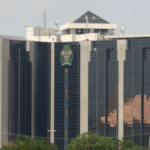Nigeria’s digital economy is set to begin the rollout of a $2 billion fibre optic network in the fourth quarter of 2025. Minister of Communications, Innovation, and Digital Economy, Dr. Bosun Tijani, revealed this in a recent interview, saying the 90,000km fibre project will bring affordable, high-speed internet to even the most remote parts of the country.
The initiative, known as Project Bridge, will deploy 90,000 kilometres of fibre cables and 7,000 telecom towers, targeting 98% nationwide coverage.
According to the Minister of Communications, Innovation, and Digital Economy, Dr. Bosun Tijani, the sector attracted $191 million in foreign direct investment in Q1 2024, up from the $22 million in Q1 2023.
A key part of the strategy is talent development. Since launching in late 2023, the 3 Million Technical Talent (3MTT) programme has trained over 117,000 Nigerians in digital skills, surpassing its initial target. With another 35,000 in training, the programme is steadily progressing toward its long-term goal of producing three million skilled workers.
- Advertisement -
Artificial intelligence is another focal point. Nigeria now ranks among the top 60 countries globally for AI readiness. The launch of the AI Collective—supported by major partners like Google, Microsoft, and Pierre Omidyar—is helping to build local capacity. The government has also funded 55 academic researchers and invested N300 million in AI and blockchain startups tackling challenges in agriculture, healthcare, and education.
“We’re not just laying fibre,” said Tijani. “We’re building the infrastructure that will power Nigeria’s digital future.”
The government’s international ambitions are also growing. The newly established Nigeria Startup House in San Francisco aims to attract $5 billion in startup funding, helping local entrepreneurs access global opportunities.
Minister of Finance Wale Edun emphasized the importance of private investment in driving economic growth. “The foundation is ready,” he said. “Now it’s time for private capital to lead Nigeria into a $1 trillion economy.”










